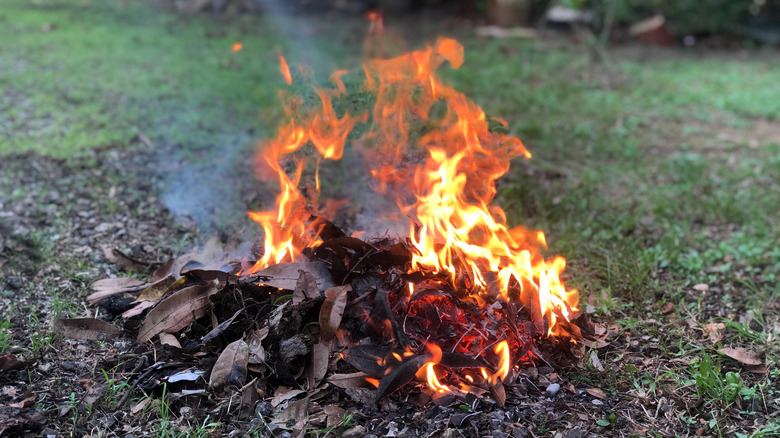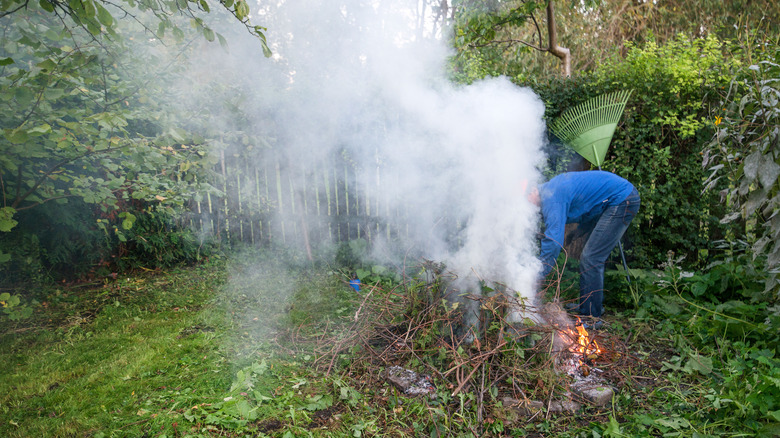Why You Shouldn't Burn The Leaves You Raked From Your Yard
With autumn just around the corner, people can begin to anticipate the colorful show that happens every year when leaves start to change from their usual green pigments to fiery reds, bright yellows, and burnt oranges. But once those leaves fall from their branches and start to collect on your lawn, that's when it's time to roll up your sleeves and rake them up.
Once you have raked your leaves and organized them into piles in your yard (and satiated your need for jumping in them), how should you dispose of them? Although the practice is not legal in all states, some people choose to burn their raked leaves to get rid of them. At first, it may seem like the most environmentally friendly option. Leaves are a natural byproduct, so why would burning them be any different than having a normal wood fire in your backyard fire pit?
But setting your leaves alight can prove harmful to the environment, and it can also cause health risks and danger to those around you, according to the NYS Department of Environmental Conservation. Beyond this, there are other dangers that could result from burning raked leaves that may make you think twice about setting your next leaf pile ablaze. Let's take a look at these related risks and some alternative methods for disposing of the leaves you've raked.
Risks to burning your leaves
Beyond the health risk involved in setting leaves on fire in your backyard — where harmful gasses and particles could irritate your eyes, throat, and lungs — there are plenty of environmental issues that could occur from leaf burning.
Smoke that billows out from a flaming leaf pile contains hydrocarbons; it also contains carbon monoxide, which could be detrimental to both people and wildlife, according to Purdue University. If leaves aren't properly watched while burning, there's also the worry of the fire getting out of control. While there are guidelines as well as warnings prepared by organizations, like the Smokey Bear campaign, there's always a risk that a gust of wind could take hot embers and blow them to a nearby dry spot, which could potentially start a dangerous fire.
Instead, there are other more useful ways of disposing of your leaves. For example, most cities have a green recycling program where garden materials can be picked up and taken to a local landfill, much like your everyday garbage. Also, raked leaves can be disposed of at home with your other biodegradable goods in a backyard compost. Finally, since there are so many beneficial nutrients in those dead leaves, they can be turned into mulch and scattered around your lawn or garden, per USA Today. When leaves break down naturally, they can add some much-welcomed vitamins to your yard.

